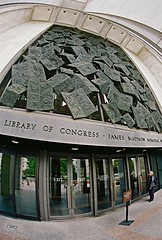Trevis Rothwell's weblog
Compulsory Mechanical Licensing
26 May 2015
 I’m at the tail end of producing a music album for a client, and have been sailing the seas of mechanical licenses. Briefly, for the uninitiated, in order to use someone else’s composition on your album, you need to secure a mechanical license. This is frequently done by working with an organization like the Harry Fox Agency, which represents many different music publishers, or going directly to a particular music publisher. But what happens when the copyright holder of a song isn’t represented by a music publisher?
I’m at the tail end of producing a music album for a client, and have been sailing the seas of mechanical licenses. Briefly, for the uninitiated, in order to use someone else’s composition on your album, you need to secure a mechanical license. This is frequently done by working with an organization like the Harry Fox Agency, which represents many different music publishers, or going directly to a particular music publisher. But what happens when the copyright holder of a song isn’t represented by a music publisher?
This happened on one of the songs for my current project. Or more precisely, the song had been co-written by two composers, one of which had his copyright represented by a music publisher, and the other of which did not. So going through the Harry Fox Agency or through the publisher, I was only able to license 50% of the song.
U.S. copyright law makes provision for a so-called compulsory license, in which case, just so long as you file the initial paperwork before publishing your recording, you can simply notify a copyright holder that you will be engaging in a compulsory license, and then follow up by sending them a check for the royalty payment, based on the number of copies to be published and the current government-established statutory rate. Not as easy as working with a publisher or with Harry Fox, but certainly doable — albeit with a catch. U.S. Copyright Office Circular 73 explains that you must also:
Make … a monthly statement of account, to the copyright owner or authorized agent of the owner on or before the 20th day of each month for every phonorecord made and distributed in accordance with the license.
and:
File with the copyright owner or authorized agent of the owner a detailed annual statement of account, certified by a certified public accountant.
The circular does not suggest any end to this, implying that monthly statements and annual accountant-certified reports must be mailed to the copyright holder indefinitely, even if no further royalties were owed. I don’t want to deal with this myself, nor do I want to burden my client with needing to deal with this.
I must not be alone in preferring to avoid directly engaging in compulsory mechanical licensing, as there are companies set up that will do this for you. One such company is Easy Song Licensing in Minneapolis, a music recording company who saw a need to help others with compulsory licensing. After spending hours across about a week trying to figure out to whom I owed a royalty payment and how to get it to them, I gladly paid ESL’s modest fee to handle the compulsory licensing paperwork for me, wishing only that I had done so earlier!